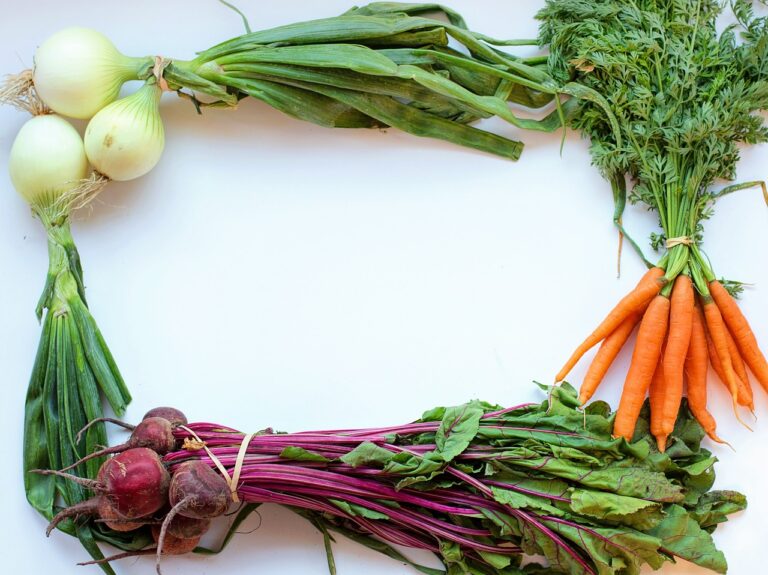Exploring the Benefits of Community Gardens: Connecting People to Nature and Food
Community gardens have been popping up in cities and neighborhoods around the world, providing spaces for individuals to connect with nature, grow their own food, and build a sense of community. These green spaces not only offer a place for gardening enthusiasts to cultivate plants, but they also play a vital role in promoting a healthy lifestyle, fostering social interactions, and improving overall well-being.
Benefits of Community Gardens
Connecting People to Nature
Community gardens offer individuals the opportunity to immerse themselves in nature, regardless of their living situation. For those living in urban areas with limited access to green spaces, community gardens provide a sanctuary where they can escape the hustle and bustle of city life. Gardening allows people to connect with the natural world, observe the cycle of plant growth, and appreciate the beauty of the outdoors.
Promoting Sustainable Practices
By growing their own food in community gardens, individuals can reduce their carbon footprint and promote sustainable farming practices. Growing food locally decreases the need for transportation and reduces the environmental impact of food production. Additionally, community gardens often utilize composting and water conservation techniques, further contributing to environmental sustainability.
Improving Physical Health
Gardening is a physical activity that provides a range of health benefits. Tending to a garden can improve strength, flexibility, and endurance, while also promoting relaxation and reducing stress levels. Engaging in gardening activities such as planting, weeding, and harvesting can help individuals stay active and maintain a healthy lifestyle.
Enhancing Mental Well-being
Spending time in community gardens has been shown to have a positive impact on mental health. Gardening has therapeutic benefits, helping individuals reduce anxiety, depression, and feelings of isolation. Connecting with nature and being part of a supportive community can boost self-esteem and overall well-being.
Fostering Social Connections
Community gardens serve as meeting grounds for people from diverse backgrounds to come together, share knowledge, and build relationships. Working alongside fellow gardeners creates a sense of camaraderie and cooperation, fostering a strong sense of community. Community gardens promote social interactions, communication, and teamwork, all of which are essential for creating a vibrant and inclusive neighborhood.
Education and Skill Development
Community gardens offer a valuable platform for individuals to learn about gardening techniques, plant varieties, and sustainability practices. By participating in community garden projects, individuals can develop new skills, gain hands-on experience, and expand their knowledge of growing food and caring for plants. These educational opportunities empower individuals to become more self-sufficient and environmentally conscious.
FAQs
What is a community garden?
A community garden is a shared space where individuals come together to grow fruits, vegetables, flowers, and herbs. These gardens are often managed collectively by members of the community who share in the responsibilities of planting, maintaining, and harvesting produce.
How can I get involved in a community garden?
To get involved in a community garden, you can reach out to local gardening organizations, community centers, or neighborhood associations to inquire about existing garden plots in your area. Many community gardens welcome new members and volunteers who are eager to contribute to garden projects and share in the harvest.
What are the benefits of growing my own food in a community garden?
Growing your own food in a community garden allows you to enjoy fresh, organic produce, connect with nature, and promote sustainable farming practices. By participating in community garden projects, you can improve your physical health, mental well-being, and social connections while learning valuable gardening skills along the way.
How do community gardens contribute to environmental sustainability?
Community gardens promote environmental sustainability by reducing the need for long-distance transportation of food, minimizing food waste through composting, and conserving water through efficient irrigation methods. By growing food locally and adopting sustainable gardening practices, community gardens play a crucial role in creating a more eco-friendly and resilient food system.
What resources are available to support community garden initiatives?
There are a variety of resources available to support community garden initiatives, including grants, funding opportunities, gardening workshops, and educational programs. Local government agencies, non-profit organizations, and community foundations often provide support for community garden projects, helping to promote gardening as a means of fostering healthy, sustainable communities.
Community gardens offer a multitude of benefits that extend beyond the act of gardening itself. These green spaces provide individuals with opportunities to connect with nature, cultivate fresh produce, improve physical and mental well-being, build social connections, and develop valuable skills. By engaging in community garden initiatives, individuals can contribute to a healthier, more sustainable future while fostering a sense of community and connection with the natural world.







